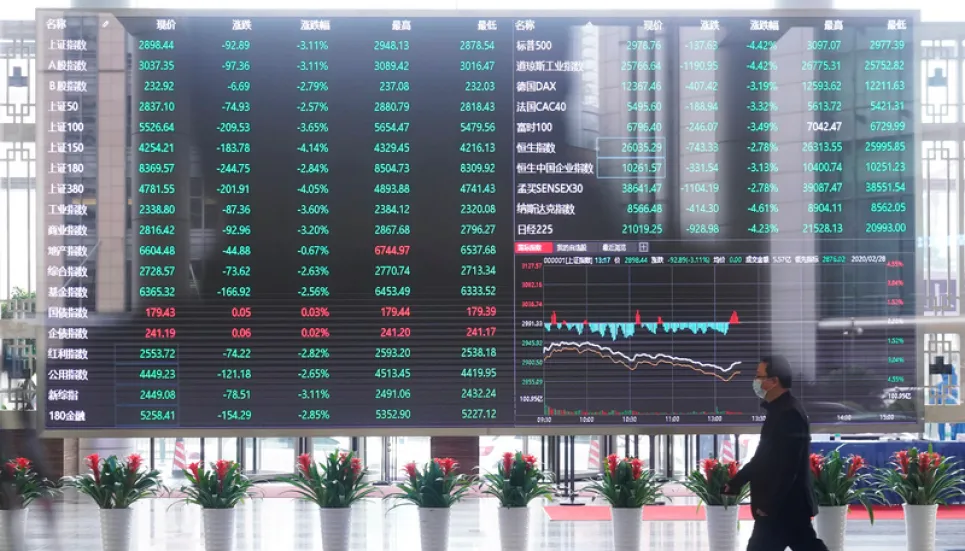
Asian shares rose on Thursday and commodity prices held near multi-year highs as investors switched to cyclicals amid hopes of a strong economic recovery, while the Australian dollar fell after China said it would end economic dialogue with Canberra.
MSCI's broadest index of Asia-Pacific shares outside Japan rose 0.25%, and Japan's Nikkei jumped 1.8% as it reopened after a five-day holiday.
Chinese shares, also resuming trade for the first time since last week, were mixed in early trade, with the Shanghai Composite up 0.45% and CSI300 down 0.2%.
On Wall Street, Dow hit a record high overnight, having risen 0.29%, while the S&P 500 added 0.07%, led by gains in energy and other cyclical shares.
The Nasdaq Composite gave up its earlier gains to end 0.37% lower on Wednesday as megacap technology companies slipped, following sharp declines on Tuesday.
Richly valued tech shares fell after U.S. Treasury Secretary Janet Yellen's suggested rate hikes may be needed to stop the economy from overheating, though she later said she was not "predicting or recommending" a near-term hike.
With very few Federal Reserve officials ready to discuss withdrawing stimulus and the world economy looking set to post a strong recovery from the pandemic-triggered recession, investors have switched to cyclicals - companies that are heavily affected by economic conditions, analysts said.
"This year, both the U.S. and Chinese economy could grow 6% or more. If the world's two biggest economies are growing that much, clearly that's positive," said Norihiro Fujito, chief investment strategist, Mitsubishi UFJ Morgan Stanley Securities.
Against this backdrop, commodity prices are riding high, with copper flirting with 10-year peaks.
Oil prices also held near their March tops. U.S. crude futures stood at $65.65 per barrel, little changed on the day but just below Wednesday's two-month high of $66.76.
Thomson Reuters CRB index has risen to its highest level since 2015, having gained more than 21% so far this year.
BONDS AND CURRENCIES
Higher commodity prices are fuelling inflation expectations in the bond market.
The U.S. breakeven inflation rate, or inflation expectations calculated from the yield gap between inflation-linked bonds and conventional bonds, rose to as high as 2.48% overnight.
But the U.S. nominal bond yields held relatively stable, with the 10-year U.S. Treasuries yield little changed at 1.584%.
"Bonds were supported partly because the pace of vaccinations has slowed in the States and as real-money investors are starting to buy," said Naokazu Koshimizu, economist at Nomura Securities.
"Rise in inflation is also driven more by supply constraints than demand, which is why we are seeing rising inflation expectations and fall in nominal yields," he added.
In currencies, the Australian dollar dropped 0.5% to $0.7712 after China's state economic planner said it had decided to "indefinitely suspend" all activities under the China-Australia Strategic Economic Dialogue.
The British pound was flat at $1.3910 ahead of a central bank policy review.
The Bank of England could slow the pace of its bond buying to allow the quantitative easing programme to last until the end of the year, as it could reach the cap by September at the current pace of buying.
Other currencies were little moved, with focus on Friday's U.S. monthly jobs report that is expected to show that nonfarm payrolls increased by 978,000 jobs last month.